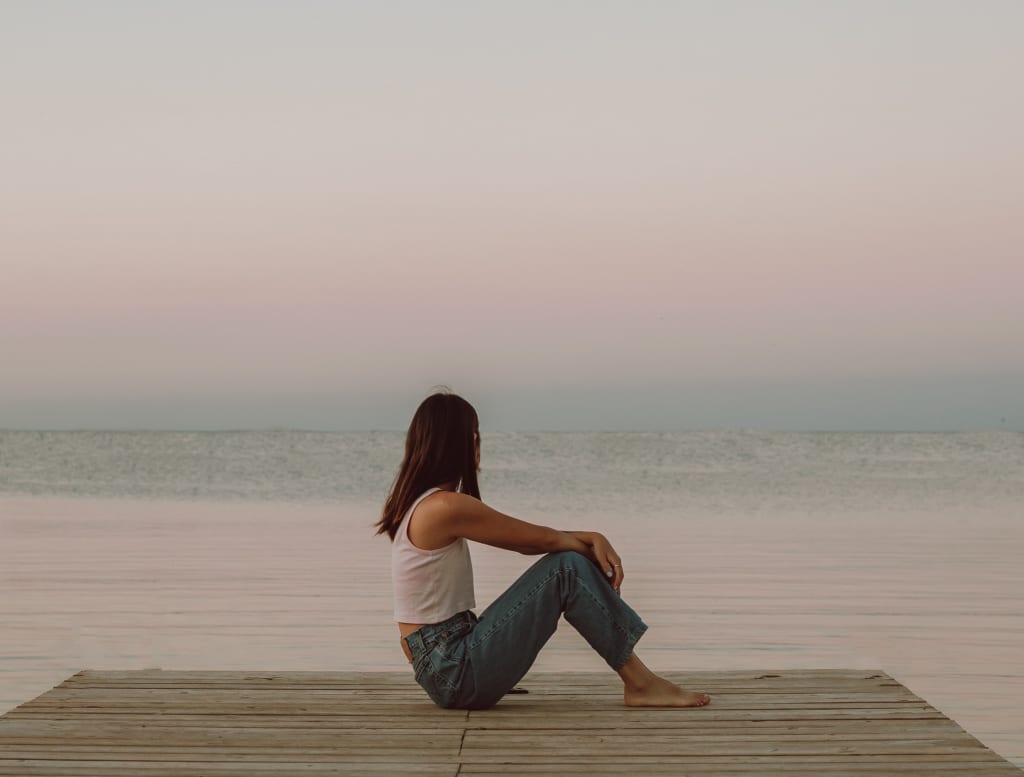Sober Curious? Take a Break for More Than 30 Days.
If you really want to experience the joys of sobriety, you have to give it time.

For many people, and myself, the question of whether they have a bad relationship with alcohol is one that haunts them for months, if not years, before they take steps to cut it out. They negotiate with their inner voice, insisting for one reason or another that they have control of their drinking; that they could “take a break” whenever they want.
As a result, trends like No Drink November and Dry January have become an increasingly popular way for people to press the pause button and test themselves.
I think that these month-long pledges to abstain can serve as a positive for many people, however, for people who are concerned about or questioning their drinking on a deeper level, I personally don’t feel like 30 days is enough.
For me, the first month of my sobriety was a rollercoaster. Some days I felt energized, joyful, and grateful for my decision to cut alcohol out. Other days, I struggled to leave my bed. I was anxious and sad — my brain was rebounding from being fed artificial dopamine for years and needed time to adjust and find the new normal. By the time I was approaching my 30th day sober — the time at which Dry January participants would be approaching the finish line — I was just beginning to experience what my life without alcohol would truly be like.
After 30 days without alcohol, once the initial adjustment period has ended, things do get tougher. But they also get so much better. Beyond 30 days is where the revelations and revolutions begin.
For example, filling your newfound free time for a month, knowing that at the end of month you have your trusty fallback of happy hours and meeting friends for drinks and relaxing with a glass of wine is a novelty — it’s a fun experiment. But filling your newfound free time without an end date, or with an end date pushed months out, becomes a truly life-changing challenge. A call to discover long-lasting hobbies.
A chance to ask yourself: what do I genuinely enjoy doing?
Because drinking problem or not, we all have the very human tendency of falling into routines. When those routines involve alcohol, they can be very limiting. Drinking as a hobby rarely involves moving our bodies, it rarely involves learning something or making deep connections or trying something new. Instead, drinking as a hobby often involves a lot of sitting, eating, revisiting the favorite bar or favorite happy hour, sometimes even rehashing the same conversations.
By taking an extended break from drinking we are able to freely shed our old understanding of how to fill our time, and begin discovering new ways to engage with the world around us. And perhaps, if you’re like me, you’ll realize that going back to drinking will nearly guarantee the swift exit of your new hobbies and, ultimately, limit your life.
When the finish line is within sight, we are less likely to see our break period as a chance to make real, lasting adjustments. Instead, it’s a series of mini-challenges each day, all of which come with an assurance that this is merely temporary.
It wasn’t until after 30 days that my body began to feel better. My skin was clearer, my stomach less bloated. For years I’d felt sick all of the time, at least once a month I’d be bed-ridden with a bad head cold, my stomach was nearly always in pain and I’d had my first bout with an ulcer. I’m not saying that after 30 days I was magically cured of every ailment, but I did start to notice all of the ways in which I felt lighter, healthier.
It wasn’t until after 30 days that I began to feel a renewed sense of energy. Month two brought a clearer head and earlier mornings. For the first time in years I had the motivation to take care of the necessary things; you know the stuff — doctor’s appointments, moving my body, calling long-distance friends and family, organizing our house.
It wasn’t until after 60 days that I felt the call to journal. As time went on, I increasingly felt the need to inspect what led me to the place I was in before I quit. On my daily walks, in the shower, as I read books, my mind wandered to a place of introspection and self-discovery. When I began journaling, I began uncovering the plethora of thoughts and desires and budding personality traits that I’d simply not given time to or had actively suppressed before.
It wasn’t until after 60 days that I began reading every QuitLit book I could find. In reaching this milestone that very few people I knew had ever reached, I began seeking advice and camaraderie in books. In the span of weeks, I filled my shelves with books like Quit Like a Woman, We Are the Luckiest, The Unexpected Joy of Being Sober, The Sober Diaries, and so many others. Learning about other people’s experiences, how others defined what ‘having a drinking problem’ is for them, and hearing about the joy and peace they found on the other side was a key part of my evolution.
It wasn’t until after 90 days that I began to see the real possibility of a life without alcohol. I’ve mentioned in other stories that I knew when I quit that it was for good, but that doesn’t mean that I knew life without it would be better. I knew that life with it was unsustainable — for me. After 3 months sober, I began to truly see all of the ways in which life would be better, brighter, clearer, more loving, more joyful, and actually improved without it. Not just sustainable — good.
It wasn’t until after 90 days that some of these pieces came together to reveal a clearer picture of what a lifetime spent sober might be like. It wasn’t until after 90 days that I’d sit in such contentment that I’d actually begin to cry. It wasn’t until after 90 days that I felt like I’d made real progress in repairing my relationships with my husband, my friends, my family. It wasn’t until after 90 days that I felt comfortable in (most) social situations, that I felt comfortable saying no, that I felt comfortable ordering a mocktail loud enough for others to hear, that I felt comfortable explaining that ‘no, I am not pregnant. I am sober.’
You get the picture. It took time. It took time to know what I know — in my bones — now, which is that I will never go back. That despite the pain and the challenges and the occasional isolation, sobriety is always worth it.
It took time to truly appreciate this gift I gave myself.
So, my recommendation to anyone who might self-classify as “sober curious” is this: give it time. How much time is up to you, but I’d say give it at least 90 days. If you truly want to know — to be certain — give it a year.
No matter how much time you decide on, promise me that whenever you think about the finish line, whenever you allay your discomfort with the recognition that you’re nearly done with this challenge, whenever you assure your friends you’ll be back to the bar scene soon — that you will do your absolute best to reframe. Or, better yet, you’ll add time to your break. Because if you genuinely want to know what it could be like to be sober forever, then you must first exist in a space where you aren’t relying on a future with booze.
About the Creator
Taylor Moran Writes
I write about sobriety & mental health. Subscribe to my weekly newsletter here: https://www.gratefullysober.com/






Comments
There are no comments for this story
Be the first to respond and start the conversation.